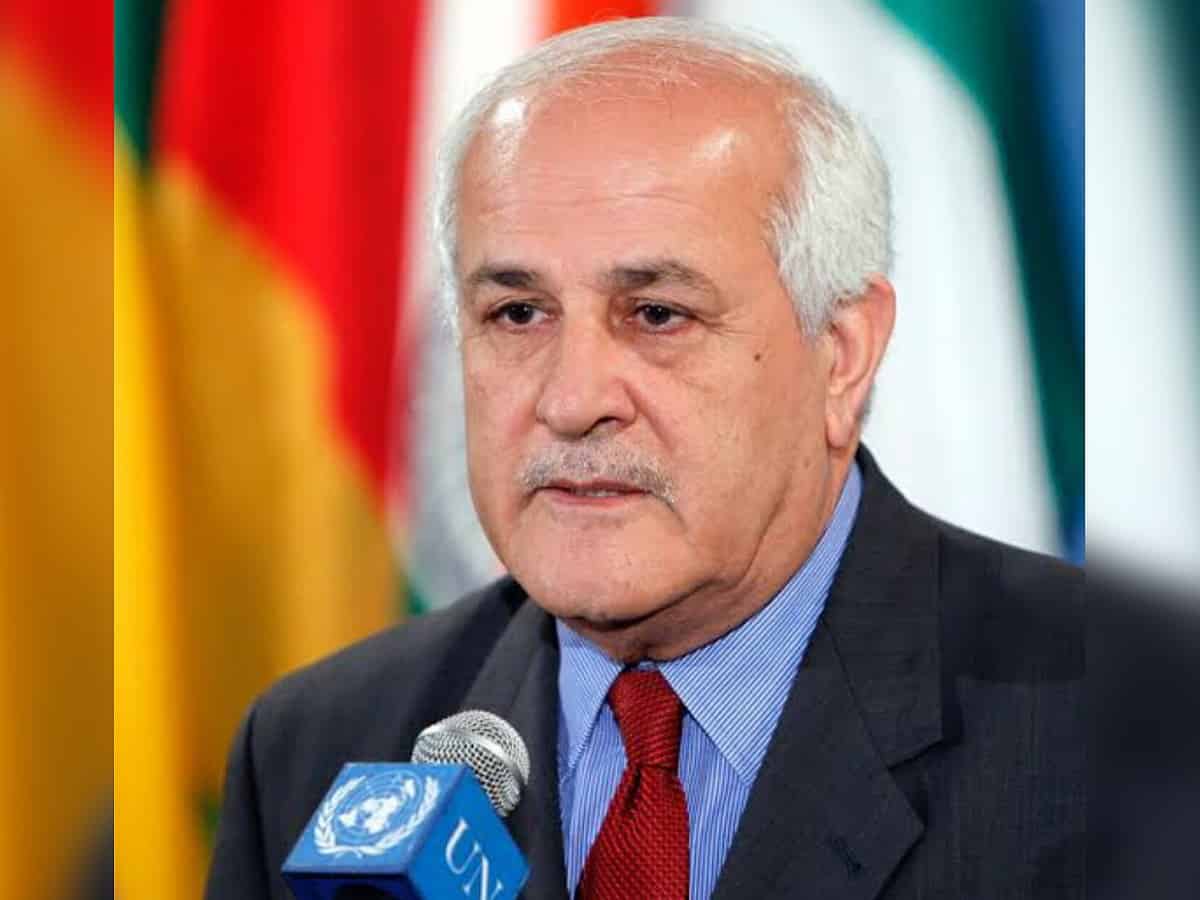
United Nations: The UN General Assembly on Friday voted to upgrade Palestine’s membership in the world body to a special status aimed at circumventing the US veto of full membership.
In the shadow of the Israeli invasion of Gaza and faltering efforts for a ceasefire, the landmark resolution was adopted with 143 votes, including that of India, France, China, Russia, and Japan, with 9 against, including the US and Israel, and 25 abstentions, including the UK, Canada, and several European members, defying the lone US veto of Palestine’s bid for full membership last month at the Security Council.
Apart from the US and Israel – whose Ambassador proceeded to shred the UN Charter, the others opposed were Hungary, Czechia, Argentina, Micronesia, Palau, Papua New Guinea, and Nauru.
Palestine’s Permanent Observer Riyad Mansour said before the vote that supporting it is “an investment in peace” and “the right thing to do”.
While remaining an observer state, Palestine gets the right to be elected to offices within the Assembly, sit among the regular member nations instead of at the back with other observers, speak on all matters, make proposals and introduce amendments to matters before the body, and participate in various procedural matters.
But its special membership will not allow it to vote at the Assembly or seek membership in other UN bodies.
The Security Council will not have to approve the special status, unlike full membership, which the US has vetoed.
The resolution, proposed by Algeria and co-sponsored by Bangladesh, Sri Lanka, Pakistan and the Maldives, also asked the Council to reconsider Palestine’s request for full membership.
US Deputy Permanent Representative Robert Wood warned that it would be vetoed.
Adopted after extensive discussions among diplomats, the resolution circumvents a US law that would have automatically cut off its contributions to the UN if it gave full membership. That would cripple the organisation as Washington is the biggest contributor accounting for 22 per cent of the regular UN budget and 27 per cent of the peacekeeping budget.
Israel’s Permanent Representative Gilad Erdan accused the UN of anti-Semitism and of flouting the UN Charter. He dramatically took out a mini-paper shredder at the podium and put a copy of the Charter through it.
Israeli’s brutal retaliation for Hamas’s October attack gave the impetus for the move to upgrade Palestine’s status after the full membership bid failed. Many US allies like France, Australia and Japan voted for the resolution, while others like Britain, Germany and Italy abstained, leaving Washington with a small coterie of mostly small states voting with it and Israel against the resolution.
More than 34,000 people, most of them women and children, have been killed in Israel’s attacks on Gaza, from where Hamas launched the attack in which about 1,200 people were killed and about 240 were kidnapped.
After Israel’s invasion of Gaza destroyed its infrastructure and limited supply of food to the territory, and UN officials have warned of a looming famine there. Israel ordered the people of Gaza to move south to avoid the impact of the invasion and more than 1.2 million are huddled in the small area of Rafah, which is now threatened with an imminent attack by Prime Minister Benjamin Netanyahu.
Assembly President Dennis Francis said before the vote: “Today, this untenable situation continues to deteriorate at alarming speed – bringing countless innocent victims into its deadly fold and pushing the region further to the brink of full-scale catastrophe.”
“This General Assembly is convoked today to pronounce itself within its powers and mandate – and to uphold the functions and responsibilities bestowed upon it by the United Nations Charter,” he said while calling upon the members “to purposely assess the situation before us with nothing else in mind, but a commitment to peace as our utmost ambition”.
Several countries referred to the harrowing situation in Gaza, while also condemning the Hamas attack and imprisonment of the hostages. Many also emphasised the need for a two-nation solution of independent Israel and Palestine existing side-by-side the basis of which would be the recognition of Palestine as a full member.
Although President Joe Biden, under growing domestic opposition to support for Israel, has taken a strong line against Israel attacking Rafah and even withholding some weapons supplies, the US stands firmly with it on most issues.
Wood said: “Our vote does not reflect opposition to Palestinian statehood; we have been very clear that we support it and seek to advance it meaningfully.”
It should come about through a negotiated settlement between Israel and the Palestinians, he said.
Explaining the vote against the resolution, he said, “Unilateral measures at the UN and on the ground will not advance this goal.”
